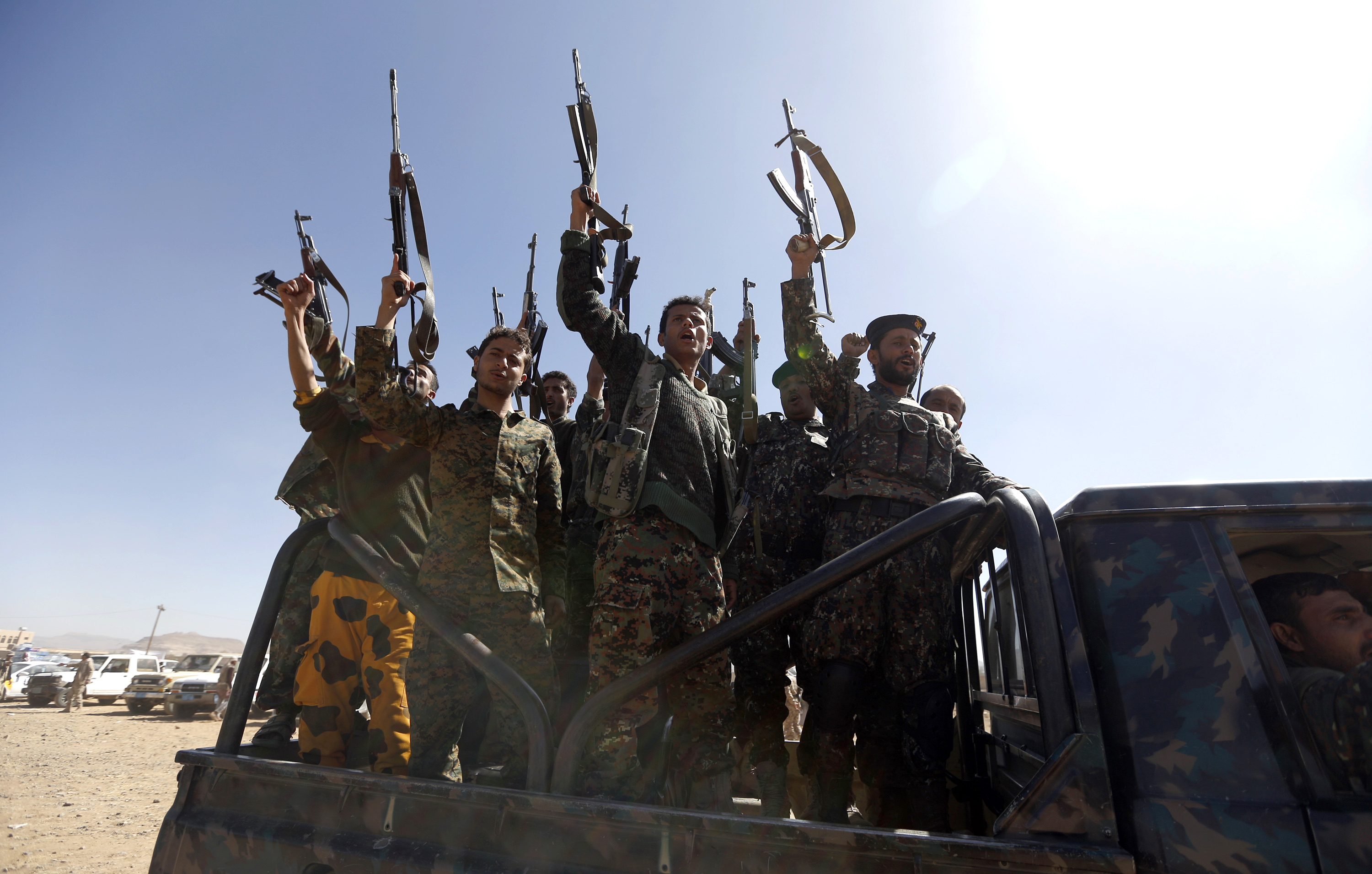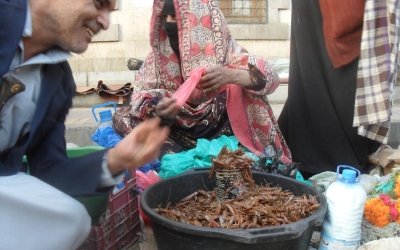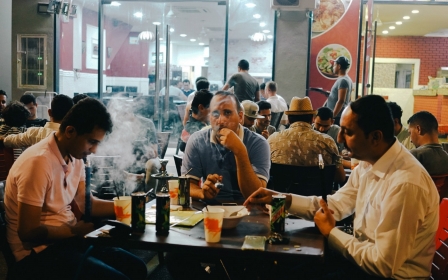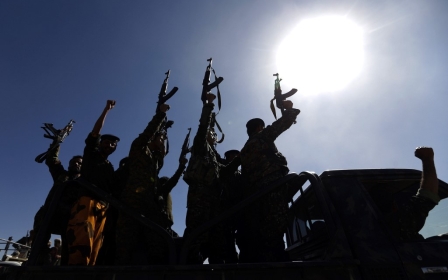Scores of Yemeni women arrested by Houthis in 'political' anti-sex work campaign
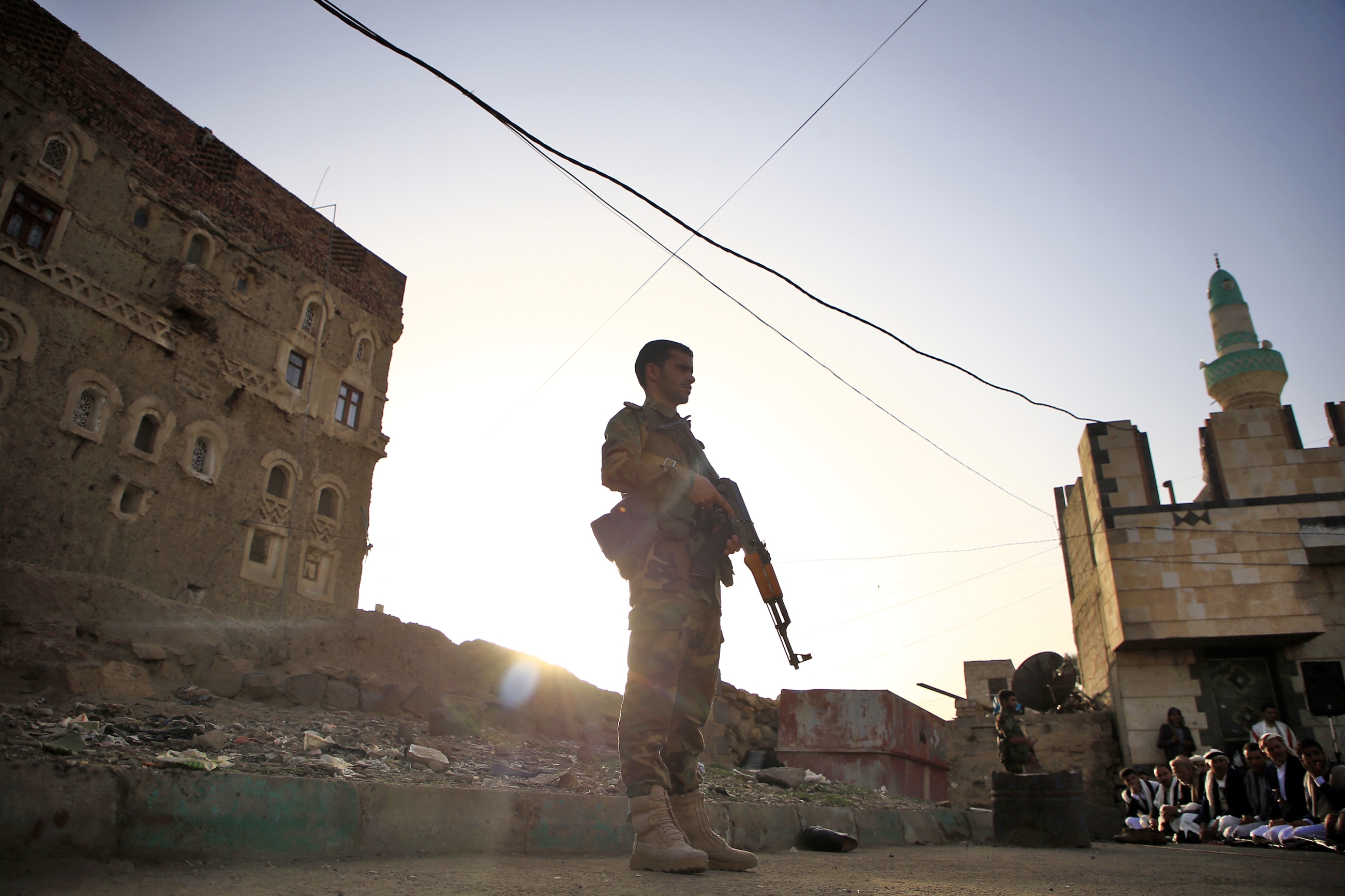
Scores of women in Yemen are currently languishing in Houthi jails accused of prostitution, despite a longstanding taboo in the conservative country against women's detention.
Currently, there are thought to be 182 women in prisons run by the rebel group. Campaigners say the Houthis accused the women of engaging in sex work - but in reality, the arrests are political.
“There are 100 innocent Yemeni women inside three rooms in a Houthi prison in Sanaa," tweeted Ishraq al-Maqtari, a member of the National Commission to Investigate Alleged Violations to Human Rights, a governmental institution.
'The Houthis arrested the women to pressure their families because of political and intellectual disagreements'
- Ishraq al-Maqtari, women's advocate
“The Houthis arrested the women to pressure their families because of political and intellectual disagreements.”
Maqtari said some had been seized in front of schools, while others were taken as they carried out aid work.
New MEE newsletter: Jerusalem Dispatch
Sign up to get the latest insights and analysis on Israel-Palestine, alongside Turkey Unpacked and other MEE newsletters
Other than those held in Sanaa, there are 70 women imprisoned in north Yemen's Amran and 12 in the Red Sea city of Hodeidah, according to Maqtari. She called on women's rights activists to extend their support to those women.
Though many families would rather not speak about the detentions, a few have started to discuss their situation on social media, pushing for their relatives' release.
The family of the activist Enas al-Sofi, 32, said on social media that the young woman was seized near her house in Sanaa on 26 June by the Houthis due to her human rights activism.
They said they had not heard from her since.
Extortion
A member of the National Commission to Investigate Alleged Violations to Human Rights told Middle East Eye the Houthis used "savage" methods against their opponents.
“The Houthis are accusing their female opponents of being sex workers to extort their opponents by creating a stigma around the women’s families," the source, who wished to remain anonymous for security reasons, said.
She said that most of the women were members of families opposing the Houthis, and some of them are aid workers.
“The campaign of detention has intensified since December 2018, targeting women between 16-74 years," she said.
“Under the threats of the Houthis, the women were forced to admit doing sex work that they did not do in order to avoid torture inside prisons."
The source, who is a lawyer, said were the accusations to be serious, they should at least go through the judicial system so the women can have lawyers to defend them. Instead, she said, "detainees have no fair trials".
Some women have confessed to involvement in sex work, but the source pointed out that “if you are a detainee inside a dark room, you will be willing to admit anything for the sake of freedom".
“Some women have admitted accusations and signed commitments not to return to sex work just to be freed,” she said, adding that some paid money to be released.
Prostitution is illegal in Yemen and, prior to the beginning of the war in 2015, was punishable by death.
In the last four years, female sex workers have been increasingly visible in Sanaa's streets, and studies conducted by UNAids, the UN organisation responsible for monitoring the spread of HIV/Aids, suggested there were 54,000 sex workers in Yemen in 2016.
The head of the Yemeni Organisation for Combating Human Trafficking, Nabil Fadhel, said earlier to MEE: “Sex work has become a lucrative trade for criminals and gangs, who have their workers trapped in a desperate situation."
"Yemen is a conservative society, so gangs exploit needy women, leading them to prostitution and then threaten to ruin their reputations if they disobey their commands," he added.
"There are more women working in prostitution and with gangs because of the economic crisis that hit Yemen, but those cases were not recorded because of the issue of dignity."
'Punished'
An officer in Sanaa's Criminal Investigation Unit (CIU) denied there was a political element and put the detentions down to a recent crackdown on sex work. He said more than 100 women had been arrested in areas of particular suspicion.
“Sanaa's residents know very well that the number of women involved in sex work has increased, and we as authorities are responsible for fighting this problem, so we did,” the officer, who spoke on condition of anonymity, told MEE.
“All women are facing fair trials, but we preferred not to make the trials public because this is a sensitive issue.”
The officer argued that leaving the issue unchecked would encourage more sex work and lead society towards "immoral disaster".
“Our religion and nationality force us to stop prostitution, which has increased during the first years of war, and I confirm that there are no fake accusations against any women in the CIU," he said.
“If accusations are proved, the women will be punished according to Islamic laws.”
The officer said there may be some women who were arrested for other reasons, but they are not being held by the CIU and they may be in other prisons.
Residents of Sanaa have become increasingly unhappy with the increasing number of sex workers in their neighbourhoods, whom they view as immoral.
Hasan Najib, a 46-year-old resident of Haddah Street, said the sight of men soliciting women in the street has become commonplace.
“I have witnessed negotiations over money between women and men in modern cars. This happens every day in Haddah Street and it is not a secret,” Najib told MEE.
He said he believed sex workers' visibility would lead the youth towards "vice".
"People from different areas of Sanaa come to this street to meet women working in prostitution," he said.
“I heard that authorities have started campaigns to arrest those bad women and I hope that soldiers can spread in this street and completely stop this work."
He added that sex work only began to spread recently amid a lack of oversight by authorities.
While some residents were supportive of the Houthis' campaign, others accused the movement of exploiting the issue to arrest its opponents.
“The sex workers are still in the streets and the Houthis themselves see them every day, moreover some Houthis may be involved in this work,” Hamed, a Sanaa resident critical of the rebels, told MEE.
“The Houthis left the sex workers and detained their opponents' women and accused them of prostitution. If they were arresting prostitutes, we would not see anyone in the streets - but that does not happen.”
Hamed hopes that activists and international NGOs can help the women in prisons.
“I hope that NGOs intervene to help women even just to receive their right to a fair trial," he said.
Middle East Eye delivers independent and unrivalled coverage and analysis of the Middle East, North Africa and beyond. To learn more about republishing this content and the associated fees, please fill out this form. More about MEE can be found here.


